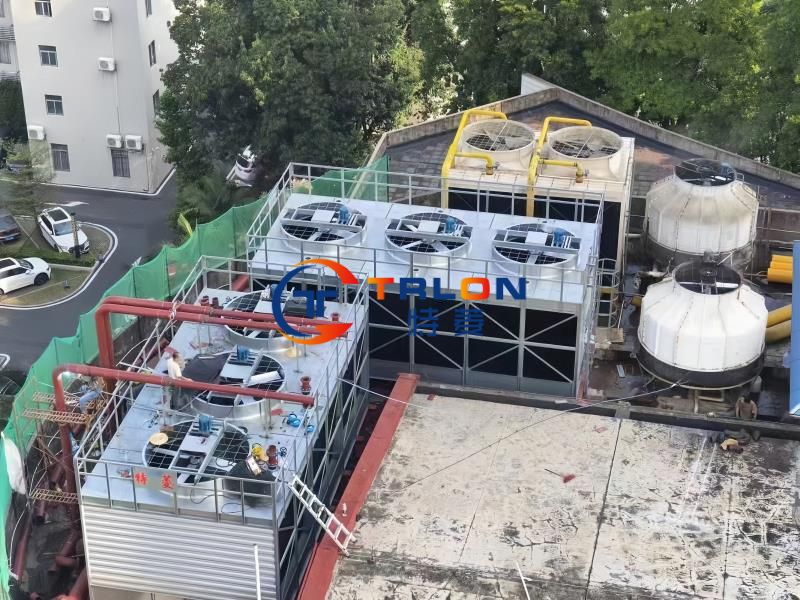
Differences in structure and energy consumption between open cooling towers and closed cooling towers
Compared with closed cooling towers, open cooling towers have different design structures, cooling water methods, manufacturing materials, and energy consumption.
The basic principle of heat removal of the open cooling tower is: pour cooling circulating water onto the PVC filler with a spray, conduct heat transfer by using the interaction between water and gas, blow the tower cyclone circulation system with a centrifugal fan, discharge the heat flow after heat transfer with water, and realize heat removal. This refrigeration method requires less initial investment but higher operating capital (water consumption, energy consumption).
The basic principle of heat dissipation in a closed cooling tower is summarized as two circulation systems:
Internal circulation, external circulation. Copper tube refrigeration unit is an important component without packing.
Internal circulation: Connect with the target device to generate a closed circulation system management system (the material of the circulation system is softened water). Refrigerate the target device and bring the waste heat recovered from the target device to the refrigeration generator set.
External circulation: In the cooling tower, heat is discharged from the cooling tower itself. Not interacting with the internal cooling circulating water, only using the copper tube surface cooler inside the cooling tower for heat transfer and cooling. Under this refrigeration method, an automatic control system is used and motors are deployed based on temperature. Two separate circulation systems must be operated during high operating temperatures in spring and summer. The working temperature is lower in autumn and winter, and in most cases only one internal cycle is needed.
Comparison of Water Consumption: Open cooling towers come into direct contact with gas, resulting in relatively high annual rainfall of water. The continuous circulation system of cooling circulating water, the water irradiated by the cooling tower has a certain temperature. Therefore, the operating temperature of open cooling towers is relatively high. Therefore, the annual rainfall of water will be greater than the volatile water in the geographical environment. According to the current general calculation method, the water consumption of an open cooling tower is 100 times that of a closed cooling tower. The water consumption of closed cooling towers can be reasonably controlled at 0.01%, while the water consumption of open cooling towers is about 1%.
Electricity comparison: The pump head of an open cooling tower is lower than that of a closed cooling tower. Closed cooling towers must also be designed with mechanical equipment such as automatic sprinkler systems and boiler auxiliary equipment. Therefore, to a certain extent, the application output power of mechanical equipment can be increased, leading to excessive electricity consumption. The self spraying and boiler auxiliary equipment of the closed cooling tower are not always turned on as cooling stages, but are turned on when the temperature is relatively high to assist in cooling. After the temperature drops, it will automatically terminate. Therefore, the electricity consumption of a closed cooling tower is not significantly different from that of an initial cooling tower.
Article Address:https://www.trlen.com/baike/712.html
Guangdong Trlon Energy-saving Air Conditioning Equipment Co., Ltd.
Contact:Mr. Wang
Free Hotline:4008-8383-95
Company Email:sales@trlon.com
Web Site:https://www.trlen.com/
Company Address: 1916A, Block A, David Donglong Business Building, Longhua, Longhua District, Shenzhen